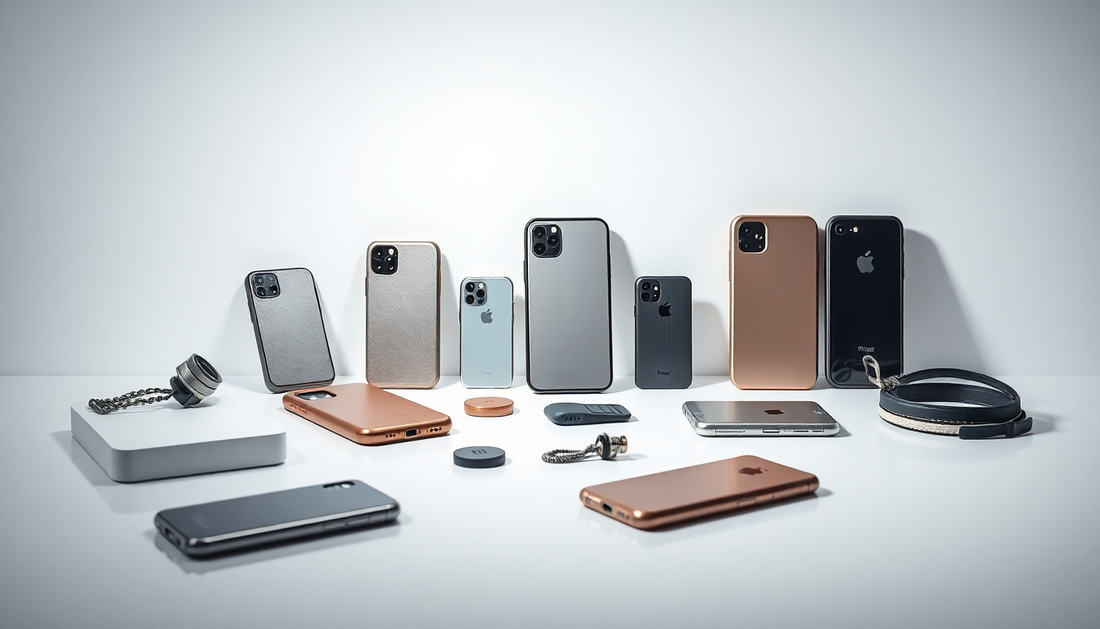
The Transformative Power of Smartphones in Healthcare and Telemedicine
In the ever-evolving landscape of healthcare, the role of smartphones has become increasingly pivotal, revolutionizing the way we approach medical care and accessibility. As technology continues to advance, the integration of smartphones into the healthcare ecosystem has opened up new frontiers, empowering both patients and healthcare providers to navigate the complexities of modern medicine with greater ease and efficiency.
The Rise of Telemedicine
One of the most significant advancements in healthcare facilitated by smartphones is the rise of telemedicine. Telemedicine, the practice of delivering healthcare services remotely through the use of digital technologies, has experienced a surge in popularity in recent years, and the COVID-19 pandemic has only accelerated its adoption.
Smartphones have become the primary conduit for telemedicine, enabling patients to connect with healthcare professionals from the comfort of their own homes. This has proven particularly beneficial for individuals living in remote or underserved areas, where access to traditional healthcare facilities may be limited. By leveraging the power of smartphones, patients can now receive consultations, diagnoses, and even treatment plans without the need for in-person visits, reducing the burden on both the patient and the healthcare system.
The Convenience Factor
One of the key advantages of telemedicine facilitated by smartphones is the unparalleled convenience it offers. Patients no longer need to take time off work, arrange for transportation, or navigate the logistical challenges of in-person appointments. With a few taps on their smartphone, they can connect with a healthcare provider, discuss their concerns, and receive the necessary care, all from the comfort of their own environment.
This convenience factor has been especially impactful for individuals with chronic conditions, the elderly, and those with mobility challenges, who may have previously faced significant barriers to accessing healthcare. Smartphones have empowered these patients to take a more active role in their own healthcare, fostering better communication with their providers and improving overall health outcomes.
Improved Access to Specialized Care
Smartphones have also revolutionized the way patients access specialized healthcare services. In the past, individuals living in remote or underserved areas may have had limited access to specialists, often requiring lengthy and costly travel to receive the necessary care. However, with the advent of telemedicine, patients can now connect with specialists across the country, or even the world, through their smartphones.
This improved access to specialized care has been particularly beneficial for individuals with rare or complex medical conditions, who may have previously struggled to find the right healthcare provider. By leveraging the power of smartphones, these patients can now receive expert guidance and treatment, regardless of their geographic location, leading to better health outcomes and a higher quality of life.
Enhancing Patient Engagement and Monitoring
Smartphones have not only transformed the way patients access healthcare but also the way they engage with their own health. Through a myriad of healthcare-focused mobile applications and wearable devices, patients can now actively monitor and manage their health in real-time.
Mobile Health Apps
The proliferation of mobile health (mHealth) apps has empowered patients to take a more proactive approach to their healthcare. These apps can be used to track various health metrics, such as physical activity, sleep patterns, and medication adherence, providing patients with valuable insights into their overall well-being.
Moreover, many mHealth apps offer features that allow patients to communicate directly with their healthcare providers, share data, and receive personalized feedback and recommendations. This enhanced patient-provider collaboration has been shown to improve treatment adherence, patient satisfaction, and overall health outcomes.
Wearable Devices
In tandem with the rise of mHealth apps, the increasing prevalence of wearable devices has further transformed the healthcare landscape. Smartwatches, fitness trackers, and other wearable technologies can continuously monitor a user's vital signs, physical activity, and even sleep patterns, providing a wealth of data that can be used to identify potential health issues and track the progress of ongoing treatments.
By integrating these wearable devices with smartphones, patients can seamlessly share this data with their healthcare providers, enabling more informed decision-making and personalized care. This real-time monitoring can be particularly beneficial for individuals with chronic conditions, such as diabetes or heart disease, allowing for early intervention and proactive management of their health.
Improving Healthcare Outcomes
The integration of smartphones into the healthcare ecosystem has not only enhanced patient engagement and access to care but has also led to tangible improvements in healthcare outcomes.
Enhanced Chronic Disease Management
For individuals living with chronic conditions, smartphones have become an invaluable tool in managing their health. Through the use of mHealth apps and wearable devices, patients can closely monitor their symptoms, track their medication adherence, and receive personalized guidance from their healthcare providers.
This improved self-management has been shown to lead to better health outcomes, reduced hospitalizations, and a higher quality of life for patients with chronic conditions. By empowering patients to take a more active role in their care, smartphones have become a crucial component in the management of chronic diseases.
Increased Medication Adherence
Medication adherence is a critical factor in the successful treatment of various medical conditions. Smartphones have played a significant role in improving medication adherence by providing patients with reminders, tracking tools, and communication channels with their healthcare providers.
Through the use of mHealth apps, patients can set medication reminders, receive alerts when it's time to take their medication, and even track their medication history. This enhanced medication management has been linked to improved treatment outcomes, reduced healthcare costs, and a lower risk of adverse events.
Improved Preventive Care
Smartphones have also had a positive impact on preventive healthcare. By providing patients with access to educational resources, screening tools, and appointment scheduling, smartphones have made it easier for individuals to proactively manage their health and stay up-to-date with recommended preventive care measures.
For example, many mHealth apps offer features that allow patients to track their screening schedules, receive reminders for routine check-ups, and even access virtual consultations with healthcare providers. This increased engagement in preventive care has the potential to lead to earlier detection of health issues, improved disease management, and a reduction in overall healthcare costs.
The Future of Healthcare and Smartphones
As the integration of smartphones into the healthcare ecosystem continues to evolve, the potential for further advancements and transformative impact is vast. From the continued expansion of telemedicine to the integration of artificial intelligence and machine learning, the future of healthcare is inextricably linked to the capabilities of smartphones.
Artificial Intelligence and Machine Learning
The integration of artificial intelligence (AI) and machine learning (ML) into smartphone-based healthcare applications has the potential to revolutionize the way we approach medical care. These technologies can be used to analyze patient data, identify patterns, and provide personalized recommendations and treatment plans.
For example, AI-powered chatbots and virtual assistants could be used to triage patient symptoms, provide initial diagnoses, and guide patients to the appropriate healthcare resources. Similarly, ML algorithms could be used to analyze data from wearable devices and mHealth apps, enabling early detection of health issues and proactive intervention.
The Rise of 5G and Edge Computing
The advent of 5G technology and the increasing prevalence of edge computing have the potential to further enhance the capabilities of smartphones in healthcare. With faster data speeds and lower latency, 5G can enable real-time data transmission and remote monitoring, allowing for more seamless and efficient telemedicine services.
Moreover, edge computing, which brings data processing and storage closer to the point of data generation, can improve the responsiveness and security of smartphone-based healthcare applications. This can be particularly beneficial in scenarios where immediate decision-making is critical, such as in emergency situations or for patients with chronic conditions.
Personalized and Precision Medicine
As the integration of smartphones into healthcare continues to evolve, the potential for personalized and precision medicine becomes increasingly tangible. By leveraging the data collected through mHealth apps, wearable devices, and telemedicine consultations, healthcare providers can gain a deeper understanding of an individual's unique health profile and tailor their treatments accordingly.
This personalized approach to healthcare can lead to more effective interventions, reduced side effects, and improved overall health outcomes. Furthermore, the integration of smartphone-based technologies with genomic data and other biomarkers can pave the way for more precise and targeted treatments, ushering in a new era of personalized medicine.
Conclusion
The role of smartphones in healthcare and telemedicine has been nothing short of transformative. By enhancing patient engagement, improving access to care, and driving tangible improvements in healthcare outcomes, smartphones have become an indispensable tool in the modern healthcare landscape.
As technology continues to advance, the integration of smartphones into the healthcare ecosystem will only become more seamless and impactful. From the continued expansion of telemedicine to the integration of cutting-edge technologies like AI and 5G, the future of healthcare is inextricably linked to the capabilities of these ubiquitous devices.
By embracing the power of smartphones, healthcare providers and patients alike can work together to navigate the complexities of modern medicine, ultimately leading to a healthier and more equitable future for all.


























